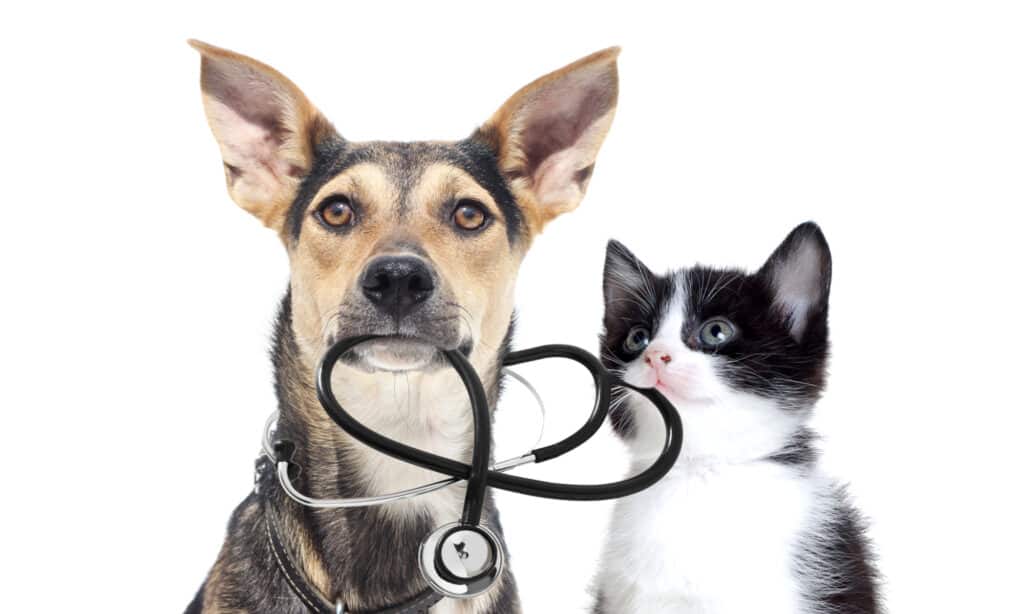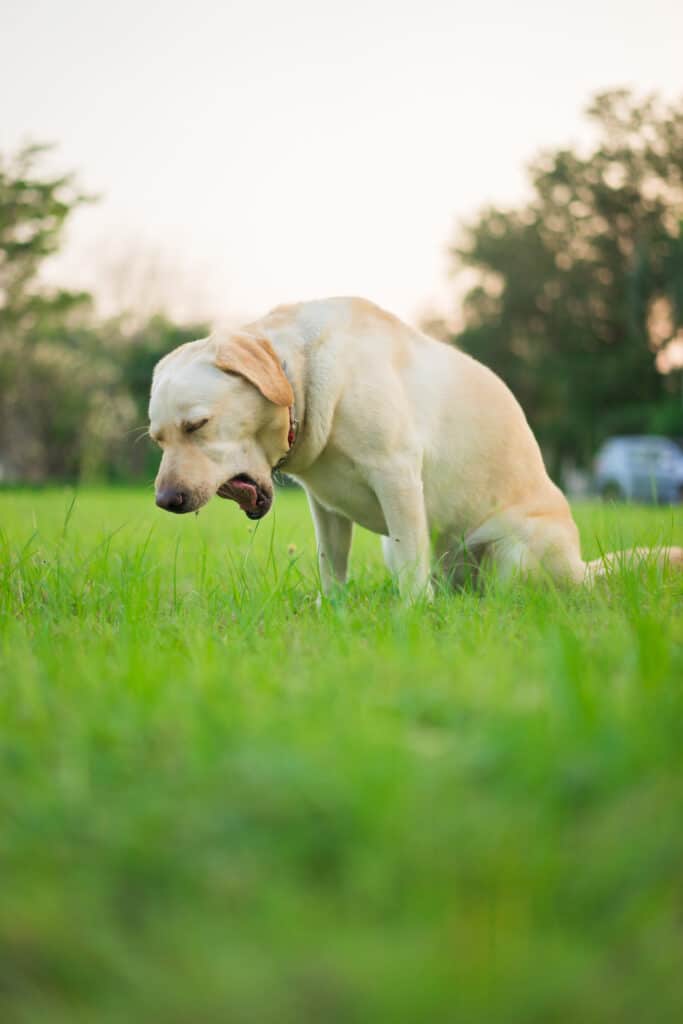Discovering your dog has an upset stomach is bad enough, but black poop is worse and can indicate your dog needs to see the vet. However, not everything that causes black stool is cause for alarm. No matter what caused your dog’s poop to turn black, if you’re in doubt, call your vet. In the meantime, we have a few home remedies you can try.
What Causes Black Stool in Dogs
Any number of things can cause your dog’s poop to turn black. It’s most often a sign of blood in the stool, which almost always means a vet trip. However, sometimes you can help ease their discomfort while a minor issue resolves itself.
The most common reasons your dog’s stool can turn black range from minor to severe.
- Parasites
- Foreign Objects/Trauma
- Cancer
- Medications
- Diet
- Toxins
Poop that’s

Dogs can get into trouble quickly and often hide their symptoms.
©Happy monkey/Shutterstock.com
1. Check for Injuries
Mouth injuries can make a dog swallow blood and it doesn’t take very much to change their stool from normal brown to black. Check their gums teeth, tongue, and lips for injuries that may have caused bleeding. As long as it isn’t serious, like a broken tooth, it should clear up on its own.
2. Switch to a Bland Diet
You’d be amazed at how quickly your dog can feel better by eating simple foods like chicken with rice, pumpkin, or oatmeal. One of the best remedies for minor issues is a bland diet and it can help clear up black stool. Of course, you should always contact them for recommendations in your situation.
3. Check Your Dog’s Toys
It isn’t a remedy, per se. But making sure your dog hasn’t eaten part of one of their toys can at least eliminate a possible cause. Also, if you have a puppy that likes eating things it shouldn’t, teaching a solid “leave it” can prevent future issues.
4. Keep Track of Bowel Movements
Even if it sounds gross, keeping a rough idea of your dog’s bowel movements gives you goosebumps provides a wealth of information when they aren’t feeling well. Small dietary changes can cause rather interesting stool changes in all dogs, but especially in puppies.
When your pup’s poop goes from somewhat solid and brown to black, runny, or gelatinous, keeping a close eye out for any other symptoms will help your vet figure out what’s going on.
5. Activated Charcoal Can Bind Toxins
Dogs that ingest toxins may benefit from activated charcoal. This natural substance can bind toxins before they hit the bloodstream. However, check with your vet because which toxins they ingested can affect whether activated charcoal is appropriate.
6. Add Soothing Slippery Elm
Slippery elm is a time-honored herb used to soothe irritated mucous membranes. It’s easy to use and can come ground for easy use. Be sure to source ethically harvested slippery elm, because it’s endangered in some areas because people over harvested it for home remedies. A teaspoon added to their food or water can improve digestive upset. It’s generally safe, but it’s a good idea to check with your vet.
7. Marshmallow Root Soothes Indigestion Too
While slippery elm is better known and probably more popular, marshmallow isn’t endangered and works just as well. In fact, it grows like a weed! Like slippery elm, it’s generally considered safe to add a teaspoon to their food or water. It can be an effective remedy for upset GI tracts and help your dog’s stool turn back from black.
8. Include Oatmeal in Your Dog’s Food
This easy home remedy may be sitting in your kitchen cupboard. Oatmeal is surprisingly soothing! It’s easy on the stomach and you can use it as part of a bland diet to help sooth an irritated gut.
Author’s note: One of my dogs has GI lymphoma. Oatmeal and marshmallow root are part of his daily diet to keep his GI tract from becoming too inflamed.
9. Probiotics for Gut Health
A tablespoon of plain Greek yogurt a day can help rebuild a damaged gut. As doctors are fond of saying, good health starts in the gut so adding probiotics can help with that. Be sure your dog isn’t lactose intollerant before you give them yogurt, because it can add fuel to an already fired up GI system. Probiotic supplements are easily procured on Amazon and Chewy for a regular boost.
When to Call the Veterinarian

If your dog is also vomiting, its black poop can signify a bigger problem.
©Dhanoo Surasarang/Shutterstock.com
Changes in bowel movements and black poop can be frightening, especially when you don’t know what caused the problems in the first place. Generally, if your dog also shows the following signs, it’s time for a vet trip:
- Dehydration
- Lethargy
- Pale gums
- Loss of appetite
- Vomiting
- Weight loss
- Diarrhea
The photo featured at the top of this post is © Victoria Rak/Shutterstock.com
Ready to discover the top 10 cutest dog breeds in the entire world?
How about the fastest dogs, the largest dogs and those that are -- quite frankly -- just the kindest dogs on the planet? Each day, AZ Animals sends out lists just like this to our thousands of email subscribers. And the best part? It's FREE. Join today by entering your email below.
Thank you for reading! Have some feedback for us? Contact the AZ Animals editorial team.






